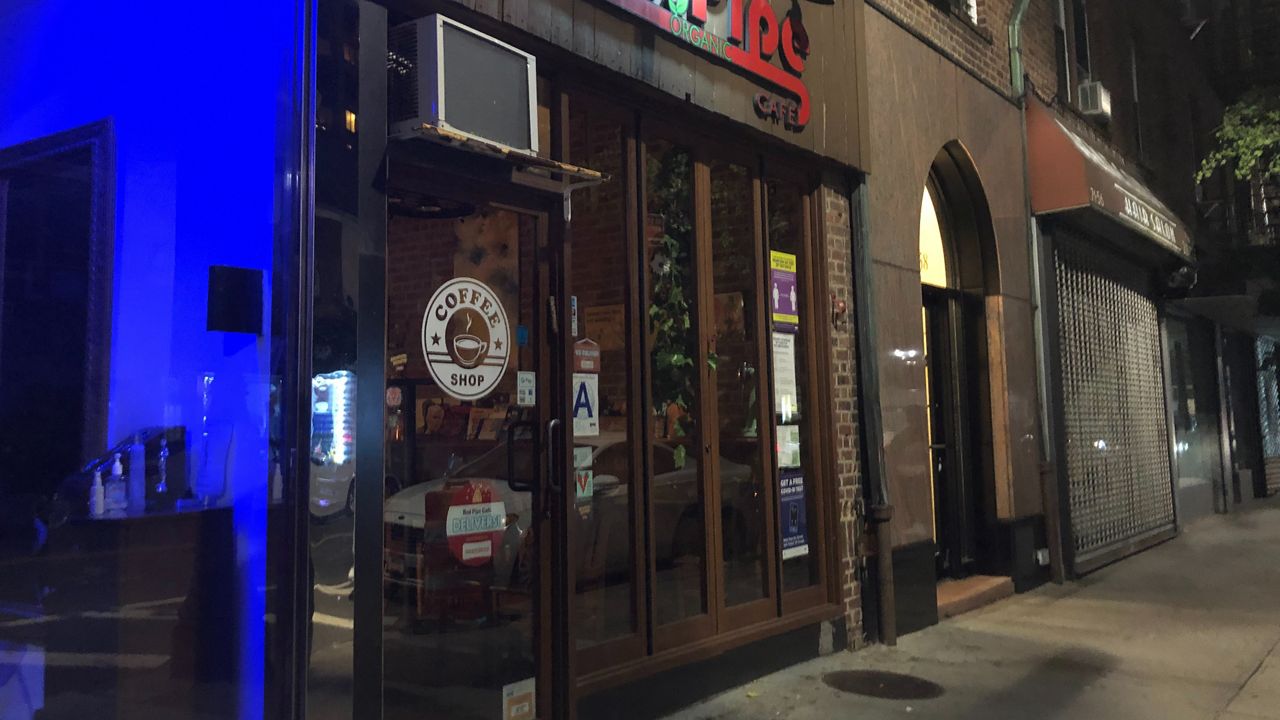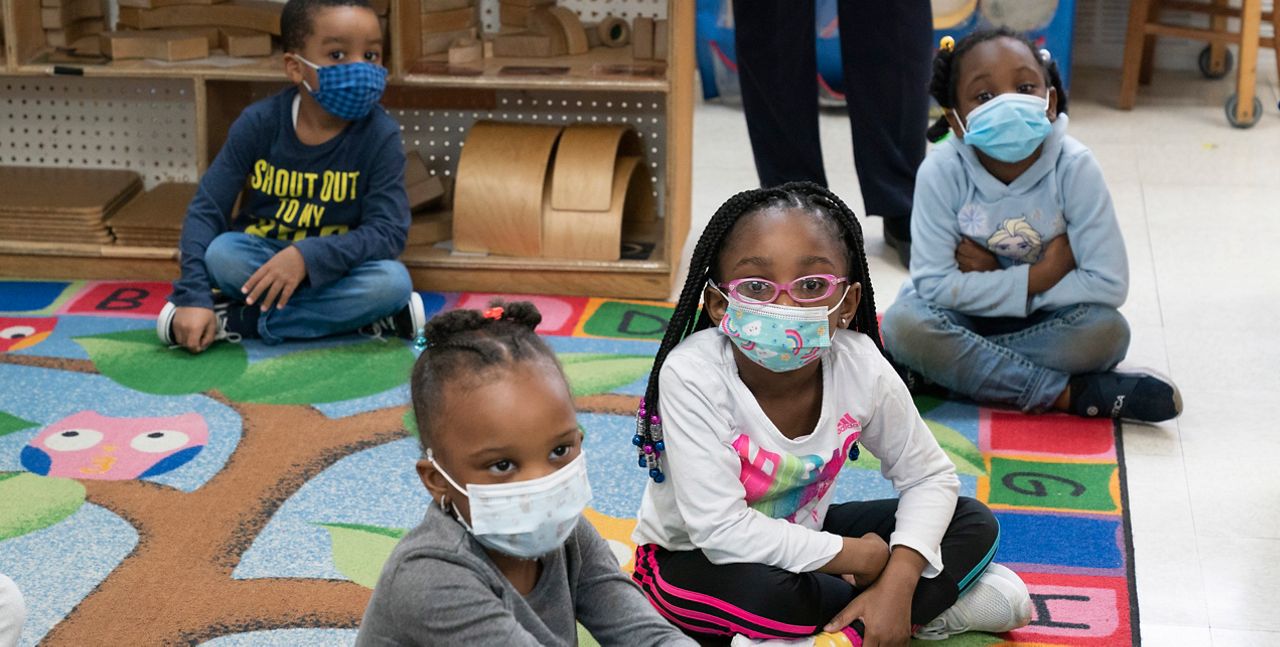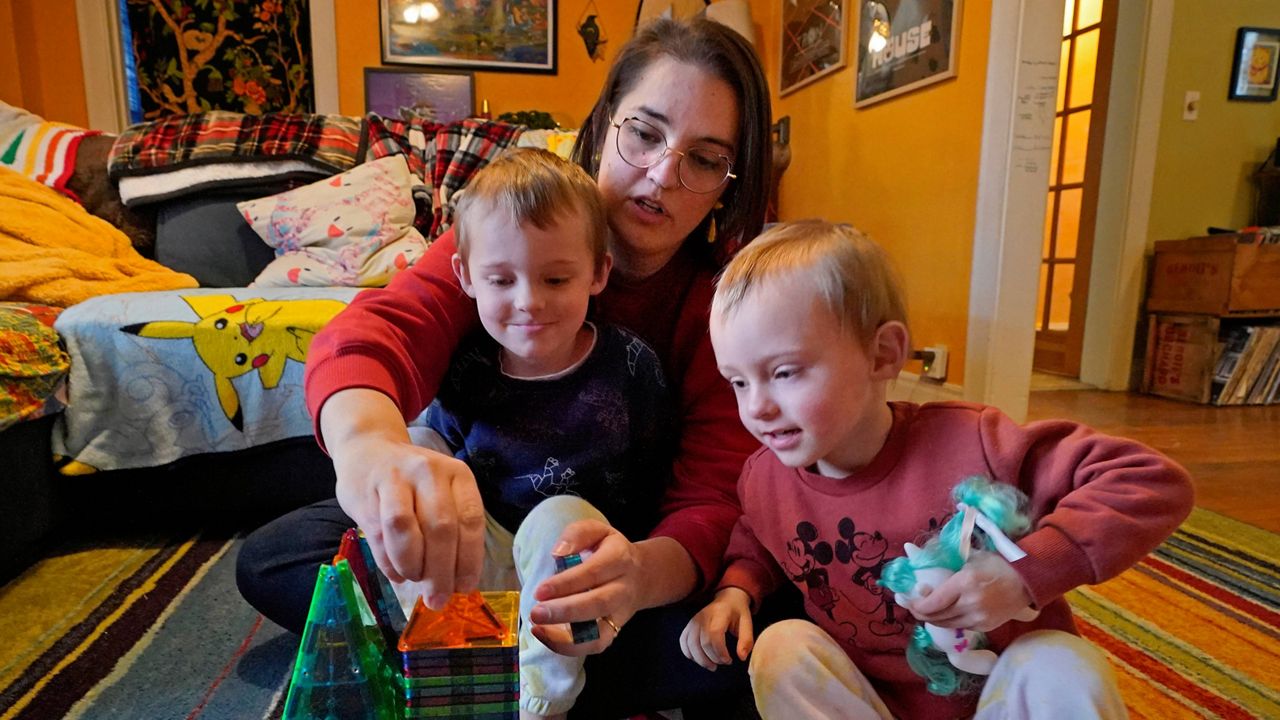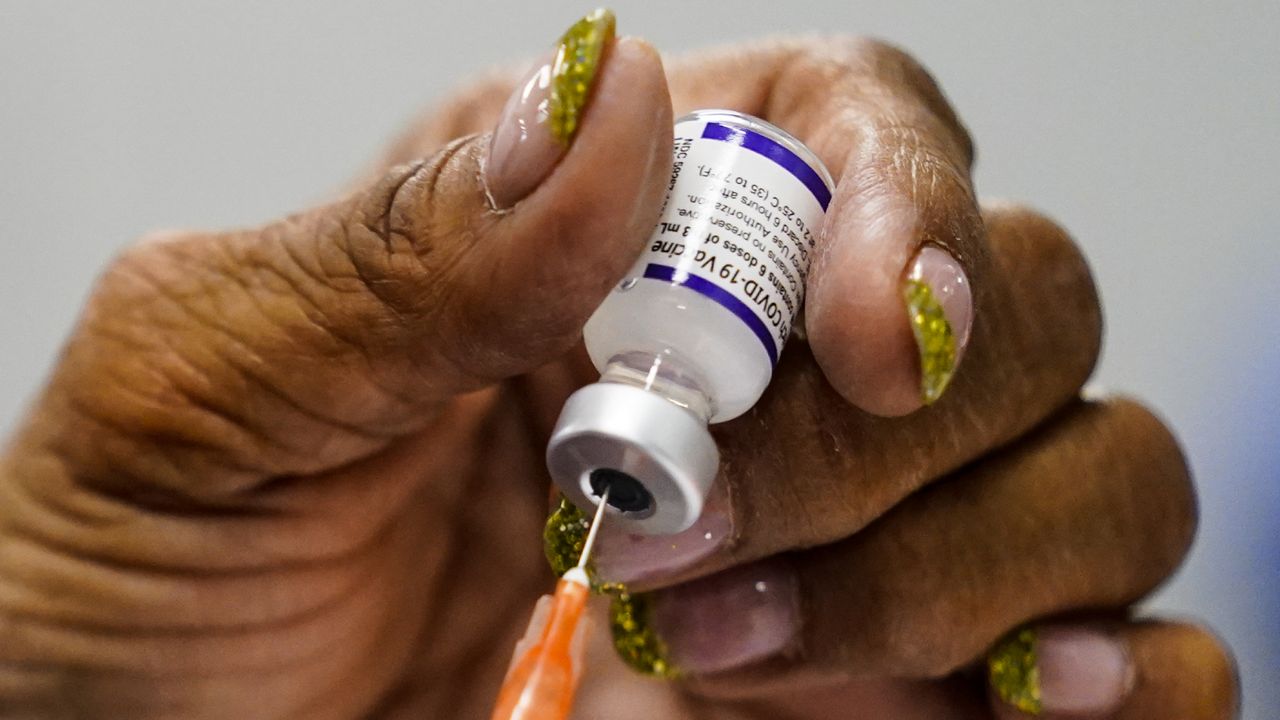NEW YORK - Nonessential businesses in coronavirus hot spot areas in Brooklyn and Queens will have to shut down no later than Friday, Gov. Andrew Cuomo announced Tuesday.
The plan rejects Mayor Bill de Blasio's proposal to target clusters by zip code and instead uses a color-coded system based on coronavirus diagnosis data, with varying levels of restrictions.
“I am not going to use zip codes and census tracts, that makes no sense to me," Cuomo said. "I’m not mailing a letter and I’m not taking a survey. Use the health data.”
The plan comes two days after de Blasio proposed shutting down nine city zip codes and imposing restrictions on several others. The announcement sparked a back and forth with the governor that led to confusion over how the city and state would target coronavirus hot spots.
“He didn’t propose a plan,” Cuomo said. “No locality has that authority.”
Under the governor's directive, the most intense clusters fall under "red" guidelines. In those areas, houses of worship will be forced to operate at 25 percent capacity, with no more than 10 people, and restaurants will be limited to takeout only. Mass gatherings of all sizes will be prohibited.
Cuomo said restrictions will also be imposed on areas just outside the hot spots, which are considered "orange" zones. In those areas, schools will be closed, houses of worship reduced to 33% capacity, with no more than 25 people, and high-risk businesses such as gyms and personal care facilities temporarily shuttered. Indoor dining will also be prohibited, while outdoor eating will be limited to four people per table.
In areas that fall in the "yellow" category, businesses will be allowed to remain open; houses of worship will have to operate at 50 percent capacity; and mass gatherings will be limited to 25 people maximum indoors and outdoors. Indoor and outdoor dining will be allowed to resume, but parties will be limited to four people per table. Schools will also remain open but with stricter testing protocols. According to the governor, students and teachers will be tested weekly. He gave the Department of Health until Friday to set specific testing guidelines.
Following the announcement, the governor tweeted maps roughly indicating the boundaries of the affected areas.
A spokesman for Mayor de Blasio said in a tweet that "the City will engage in outreach and education in these communities with implementation likely to begin on Thursday."
Initially, de Blasio wanted the lockdown to begin Wednesday.
The new rules also apply to areas outside the city, including parts of Rockland and Orange counties and Binghamton, that have seen a troubling rise in cases.
Many of the areas in question contain large ultra-Orthodox Jewish communities that have not always followed rules to avoid large gatherings.
“When you see the cluster you have to stop it at that point," said Cuomo. "Crush the cluster and stop the spread."
The announcement comes a day after Cuomo ordered schools to close in nine city zip codes that have seen the coronavirus positivity rate rise above 3 percent for seven days or more.
Cuomo blamed the rise in coronavirus cases on the city's failure to enforce social distancing and mask requirements.
“If the plan I passed into law was actually enforced we wouldn’t be here," he said.
“If you're not going to enforce old rules what makes you think you’re going to enforce these rules,” Cuomo added when asked about de Blasio's proposal to target hot spots by zip codes.
These rules will be in effect for at least 14 days.
In Flatlands, Business Owner Caught In Middle of New Restrictions
By Dan Rivoli
Ali Ellahi, owner of a computer and phone repair shop in Flatlands, already closed because of the pandemic for seven weeks.
He may be out of business a second time because he is in a state-designated hot spot.
"Because of corona, I heard all the news. I heard everything. People died all over the world," he said.
De Blasio asked the state for new restrictions on businesses based high rate of coronavirus, broken down by zip code.
As far as Ellahi knew, his store was located in a zip code on New York City's watchlist, where cases were under 3% and not as high as other neighborhoods facing restrictions.
But then, Cuomo released a heat map of areas with high rates of coronavirus, with red zones, orange zones and yellow zones, each with different restrictions on business operations.
Ellahi's business is on Flatbush Avenue off Kings Highway in a red zone. As a nonessential business, he could be shut down.
"There's no choice. What can I do? I cannot do anything. I have to follow the rules and regulations," he said. "It's the safety of my life and all of the people who come to my store."
His customers are also affected.
"Right now, I come to fix my phone. So imagine if he was closed right now, everything closed. So now my phone would be dead now. So no service, no contact, I can't go nowhere," one customer said.
Dexter Baptiste manages a clothing shop, Woodstack, on a part of Flatbush Avenue that's in the orange zone, where high-risk, nonessential businesses like gyms must close.
It's unclear if the store would be forced to close, but Baptiste said he understands it could be necessary for public safety.
"It's kind of heartbreaking to come back," he said. "It's gonna be hard, but our customer's health is more important to us."
With the state's guidance out, a spokesman for Mayor Bill de Blasio said that the city on Wednesday will start reaching out to businesses affected by the new restrictions, with closure likely going into effect on Thursday.
In Forest Hills, Business Owner Battles Financial and Emotional Impact of Changes
By Angi Gonzalez
David Alkalay, the owner of Red Pipe Cafe in Forest Hills, fears he may soon have to permanently close the business he’s been building for the last 6 years.
“We were providing what i felt was a real community service," he said. "And now we are basically dead."
Alkalay told NY1 that he has the only organic vegan cafe in Queens.
He said he’s built a loyal following because of that that uniqueness and the other activities that they offer, like poetry readings and art displays.
Alkalay said his business woes have only arisen in the last year, when the coronavirus pandemic caused his business to close for the first time since it opened.
He said that with all of the restrictions the state and city have implemented since the beginning of the pandemic, the ones being proposed by the mayor and governor this week will seal his fate.
“This place for me was a spiritual endeavor, and I put a lot of money into it, and Ill probably lose that money,” he said.
The cafe is in an orange zone, which means that he could technically still participate in outdoor dining.
However, because of the way that his business is set up, he would only be able to do takeout and delivery.
The cafe has little space for outdoor seating, and his only hope was the beginning of indoor dining.
He admitted that while they wouldn’t even break even with indoor seating at 25% capacity, that he could start to rebuild.
Now, he said that because he happens to be located in an area where coronavirus cases have consistently been growing, there’s virtually no way for him to make a comeback.
“We’re in a no-win situation. The mayor and governor are not helping us at all,” Alkalay said.
Community Board 6, which works with businesses in Forest Hills, has tried make officials aware of the plight small business owners are going through.
The chair of CB 6 sent out a letters on Tuesday, also posted on social media, that specifically said the Mayor provided a lack of coordination in response to the recent uptick of COVID-19 cases in their district.
“There’s been really a disregard for people’s for business people and families, and there is no clear guidance,” said Alexa Weitzman, the chair of Community Board 6.
Many business owners and their advocates in Forest Hills fear that their concerns aren’t being addressed.
Gym Owners in Cuomo's Zoned Shutdown Plan Brace for Another Closure
By Lori Chung
Prospect Fitness was among of the last businesses allowed to reopen after the citywide lockdown last March. Now, owner Mark Anthony Hutmacher is preparing to shut his doors again.
"It doesn't surprise me. It's just another kick in the gut, and we've had several of those," Hutmacher said.
He learned suddenly Tuesday that his boutique gym's location on Beverley Road near Coney Island Avenue puts him in right in the governor's zoned shutdown plan to suppress coronavirus hotspots. As a gym in the so-called orange zone, it's considered high risk and nonessential.
"I know de Blasio was going by the zip codes. I can understand why Cuomo is going by the zipcodes," he said
But Hutmacher says he can't understand why policy makers aren't creating solutions to help business owners survive.
"There is [sic] so many people hurting everywhere, and it's not just my industry that I'm frustrated," said Hutmacher. "I'm just frustrated as a whole for the community. I can't believe that Congress and the government just won't spend money to hold people in place."
For now, he says he'll go back to what he did during the first shutdown.
"I learned how to take the sandbags, load them up on a wagon, walk them out of here and walk them up to the parade grounds, and I can still do training outside," he said, describing his contingency plan.
But he hopes elected officials heed his message.
"Please take care of us. I mean, we really support the economy, you know?" he said. "Money needs to exchange hands."





_PKG_CENTRAL_PARK_HOSP_CG_133817001_3232)


